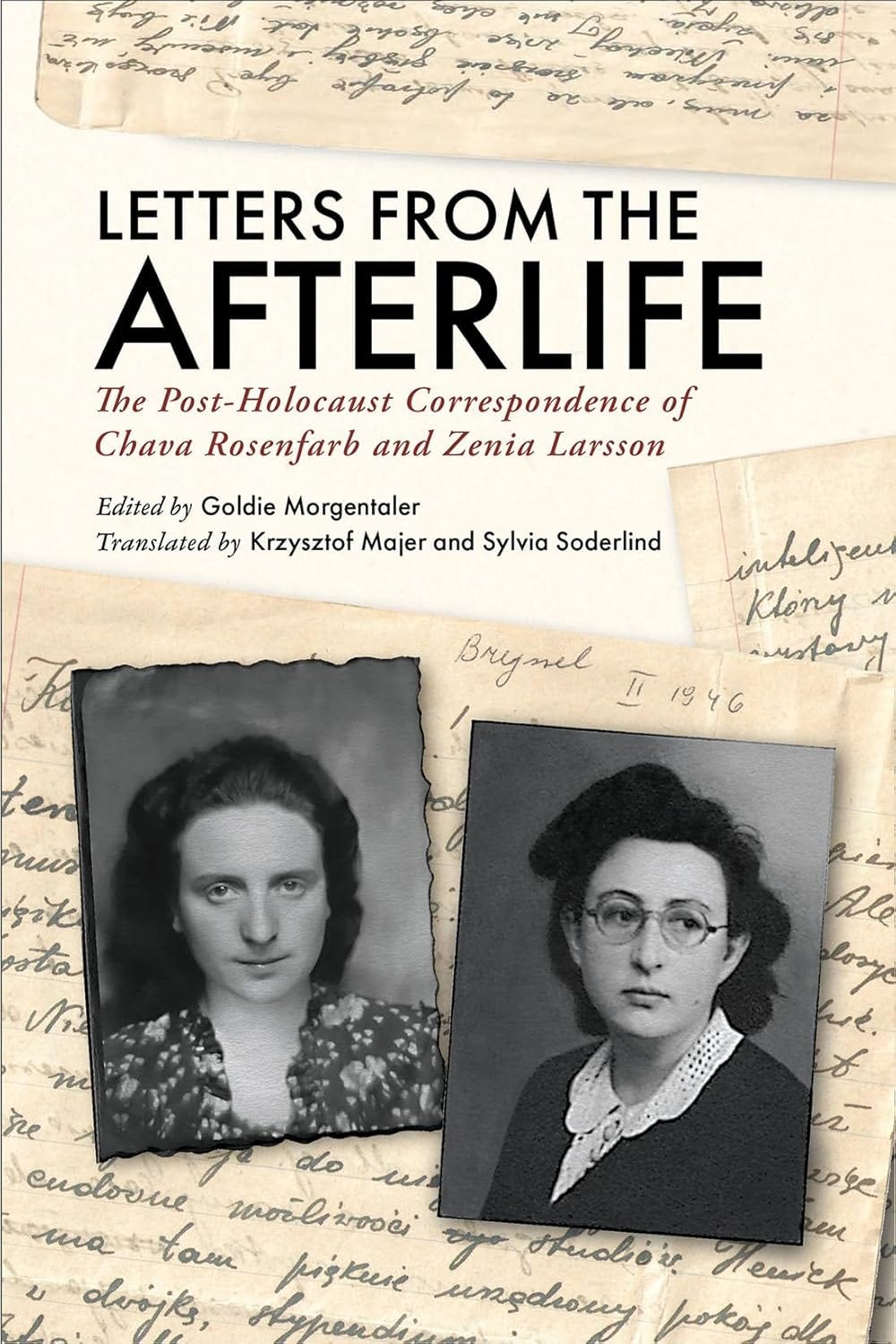Letters from the Afterlife: The Post-Holocaust Correspondence of Chava Rosenfarb and Zenia Larsson by Goldie Morgantaler
Reviewed by Michael Greenstein
There is an afterglow to Letters from the Afterlife thanks to Goldie Morgantaler’s careful editing of her mother’s correspondence and equally luminous translations by Krzysztof Majer and Sylvia Söderlind from Polish and Swedish. Indeed, this book is dedicated to all literary translators everywhere who “throw open the doors to a wider world so that the rest of us may pass through.” These open doors contrast with the closing of ghetto gates, cattle cars, and concentration camps throughout the Holocaust. The post-Holocaust correspondence between Chava Rosenfarb and Zenia Larsson tells a piercingly raw and intimate story about their lives in Canada and Sweden.
In Sweden, Zenia tries unsuccessfully to erase the past in Poland: “When I left Bergen-Belsen, it was with a firm determination to draw a line over my whole past, forget everything, and begin anew. This has not been possible. There are difficult moments. The past returns.” And it returns with a vengeance, even as the present beckons. The correspondence between these two creative survivors acts in part as a writing cure, the catharsis of superimposing new lines and lives over the old. Zenia marries Per-Axel Larsson in Sweden where she sculpts and writes Letters from a New Reality, a trilogy about the Lodz ghetto, published between 1960 and 1962.
It is best to have a taste of their letters, which are intimate and emotional – filled with pain and joy. Chava to Zenia: “My dear Zenia, Finally some news about you! I got your address from ‘Bela,’ so I am writing to you. I have now been in Belgium for two weeks, but I put off writing until today. The reason was that I was upset that you haven’t written to me even once since we parted, although you had my address.” This is followed by Zenia’s letter to Chava 25 December 1945: “Today I received your letter; it made me pace back and forth in my room for a good hour, as if I were mad! How could you believe that time would affect or weaken our friendship?” Trauma has affected both writers.
Just as it is necessary for them to exchange letters, so is it necessary for the reader to bear witness to the aftermath of the Holocaust, and to experience the emotional ups and downs in the friendship of these two resilient writers. Whereas Chava has two children, Zenia remains childless. Towards the end we learn of Chava’s marital breakdown, and Zenia has the last word near the end of 1971: “I’ve been thinking about you a lot – and it is with great anguish and yearning, as if this letter exchange had been an operation, perhaps necessary, but unsuccessful.” Goldie Morgentaler’s operation of bringing these two lives to light is highly successful and therapeutic in the afterglow of posterity.
About the Author
Goldie Morgentaler is professor emerita at the University of Lethbridge and an award-winning translator from Yiddish to English.
Krzysztof Majer is a literary translator, assistant professor at the University of Lodz, and editor at Literatura na Swiecie and Text Matters.
Sylvia Söderlind is professor emerita at the Department of English, Queen's University.
About the Reviewer
Michael Greenstein is a retired professor of English (Université de Sherbrooke). He is the author of Third Solitudes: Tradition and Discontinuity in Jewish-Canadian Literature and has published widely on Victorian, Canadian, and American-Jewish literature.
He has published 250 essays and reviews in books and journals across Canada, the United States, and Europe.
Book Details
Publisher : McGill-Queen's University Press
Publication date : June 17 2025
Language : English
Print length : 360 pages
ISBN-10 : 0228024668
ISBN-13 : 978-0228024668




